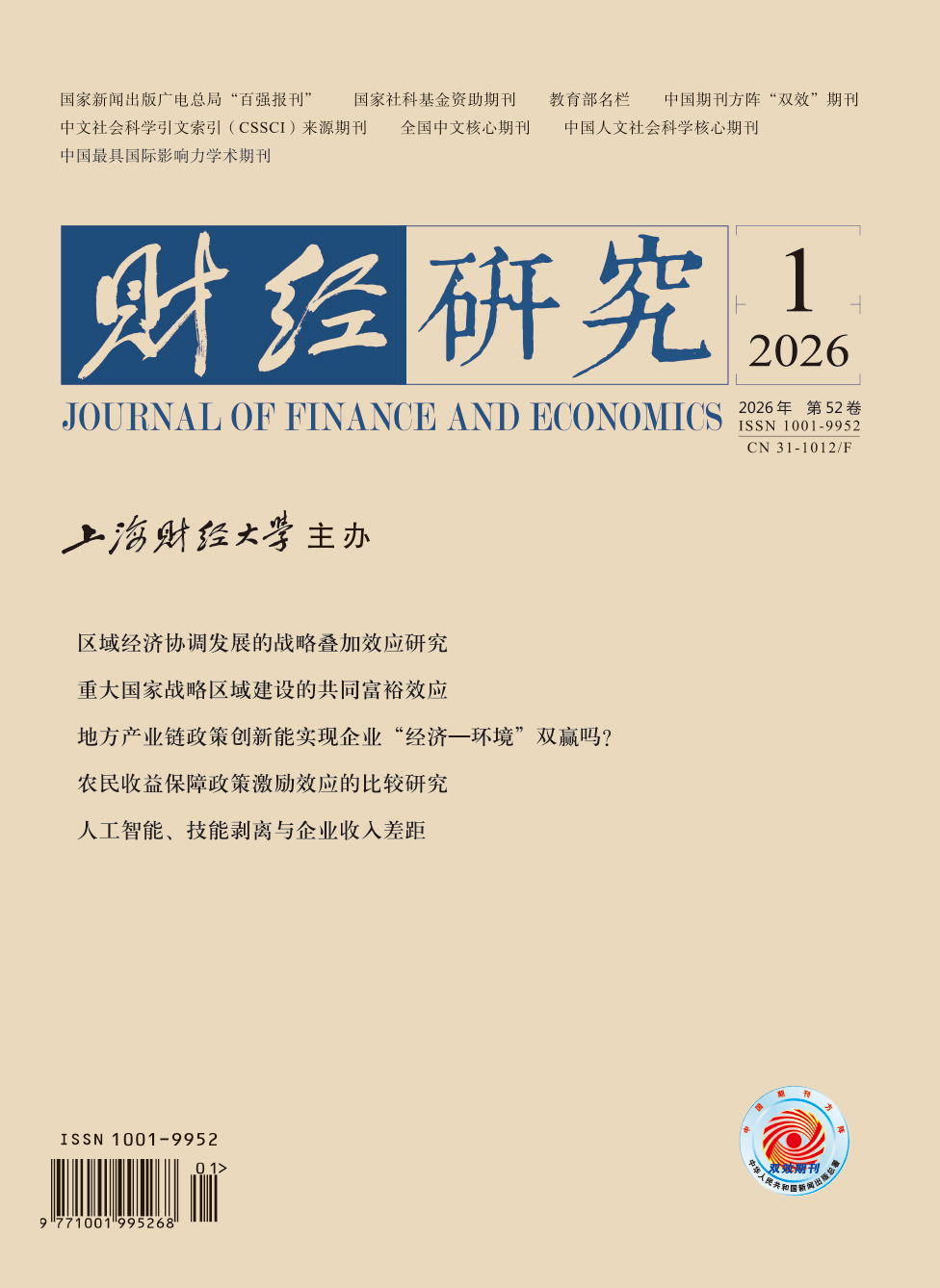文章使用中国私营企业调查数据,实证研究了创业者的体制内关系对新创企业的创业规模和长期成长的影响及其作用机制。研究发现,拥有体制内关系的创业者不仅创业规模更大,而且创业后的净资产复合增长率也更高。进一步研究发现,与其他创业者的创业资金更多来源于个人积累不同,拥有体制内关系的创业者更有可能依靠银行贷款和国有企业改制等途径进行创业;同时,他们对政府出台的民营企业支持政策更为了解,也更有可能通过担任人大代表、政协委员或工商联领导等方式重新获得政治身份。文章还发现,创业者的体制内关系在金融业不发达地区的作用更大。文章揭示了体制内关系带来的创业不平等问题,为中国推行“大众创业、万众创新”的战略举措提供了有价值的政策启发。
体制内关系、创业规模与新创企业成长
摘要
参考文献
2 陈文沛. 关系网络与创业机会识别:创业学习的多重中介效应[J]. 科学学研究,2016,(9):1391−1396. DOI:10.3969/j.issn.1003-2053.2016.09.013
18 Arauzo-Carod J M,Segarra-Blasco A. The determinants of entry are not independent of start-up size:Some evidence from Spanish manufacturing[J]. Review of Industrial Organization,2005,27(2): 147−165. DOI:10.1007/s11151-005-8321-z
19 Åstbro T,Bernhardt I. The winner’s curse of human capital[J]. Small Business Economics,2005,24(1): 63−78. DOI:10.1007/s11187-005-3097-y
20 Claessens S,Feijen E,Laeven L. Political connections and preferential access to finance:The role of campaign contributions[J]. Journal of Financial Economics,2008,88(3): 554−580. DOI:10.1016/j.jfineco.2006.11.003
21 Dougherty S M. Legal reform,contract enforcement and firm size in Mexico[J]. Review of International Economics,2014,22(4): 825−844. DOI:10.1111/roie.12136
22 Faccio M. Politically connected firms[J]. American Economic Review,2006,96(1): 369−386. DOI:10.1257/000282806776157704
23 Girma S,Görg H,Hanley A,et al. The effect of grant receipt on start-up size:Evidence from plant level data[J]. Journal of International Entrepreneurship,2010,8(4): 371−391. DOI:10.1007/s10843-010-0061-y
24 Jia R X, Lan X H. Red capitalism: Cadre parents and entrepreneurial children in China[R]. GSB Working Paper, 2013.
25 Khwaja A I,Mian A. Do lenders favor politically connected firms? Rent provision in an emerging financial market[J]. The Quarterly Journal of Economics,2005,120(4): 1371−1411. DOI:10.1162/003355305775097524
26 Laeven L,Woodruff C. The quality of the legal system,firm ownership,and firm size[J]. Review of Economics and Statistics,2007,89(4): 601−614. DOI:10.1162/rest.89.4.601
27 Ledeneva A V. How Russia really works: The informal practices that shaped post-soviet politics and business[M]. Ithaca: Cornell University Press, 2006.
28 Li H B,Meng L S,Zhang J S. Why do entrepreneurs enter politics? Evidence from China[J]. Economic Inquiry,2006,44(3): 559−578. DOI:10.1093/ei/cbj031
29 Lotti F,Santarelli E,Vivarelli M. Defending Gibrat’s law as a long-run regularity[J]. Small Business Economics,2009,32(1): 31−44. DOI:10.1007/s11187-007-9071-0
30 Mata J,Portugal P,Guimarães P. The survival of new plants:Start-up conditions and post-entry evolution[J]. International Journal of Industrial Organization,1995,13(4): 459−481. DOI:10.1016/0167-7187(95)00500-5
31 Persson H. The Survival and growth of new establishments in Sweden,1987-1995[J]. Small Business Economics,2004,23(5): 423−440. DOI:10.1007/s11187-004-3992-7
32 Resende M. Determinants of firm start-up size in the Brazilian industry:An empirical investigation[J]. Applied Economics,2007,39(8): 1053−1058. DOI:10.1080/00036840500461998
33 Stam W,Arzlanian S,Elfring T. Social capital of entrepreneurs and small firm performance:A meta-analysis of contextual and methodological moderators[J]. Journal of Business Venturing,2014,29(1): 152−173. DOI:10.1016/j.jbusvent.2013.01.002
34 Zhou W B. Bank financing in China’s private sector:The payoffs of political capital[J]. World Development,2009,37(4): 787−799. DOI:10.1016/j.worlddev.2008.07.011
引用本文
赵阳, 吴一平, 杨国超. 体制内关系、创业规模与新创企业成长[J]. 财经研究, 2020, 46(7): 79-92.
导出参考文献,格式为:






 6320
6320  6984
6984

